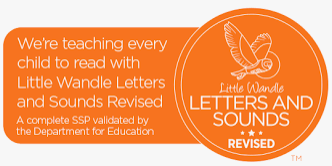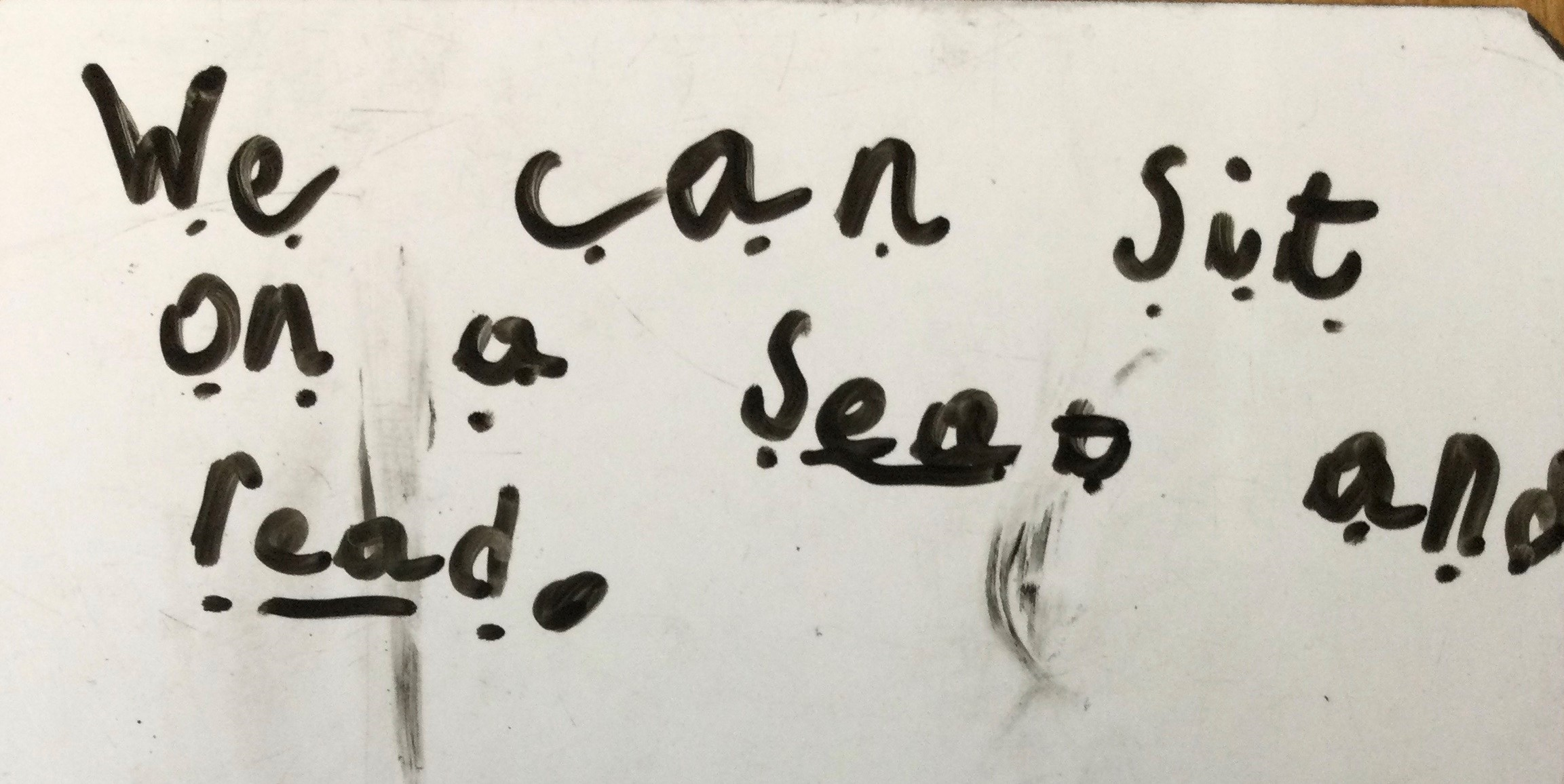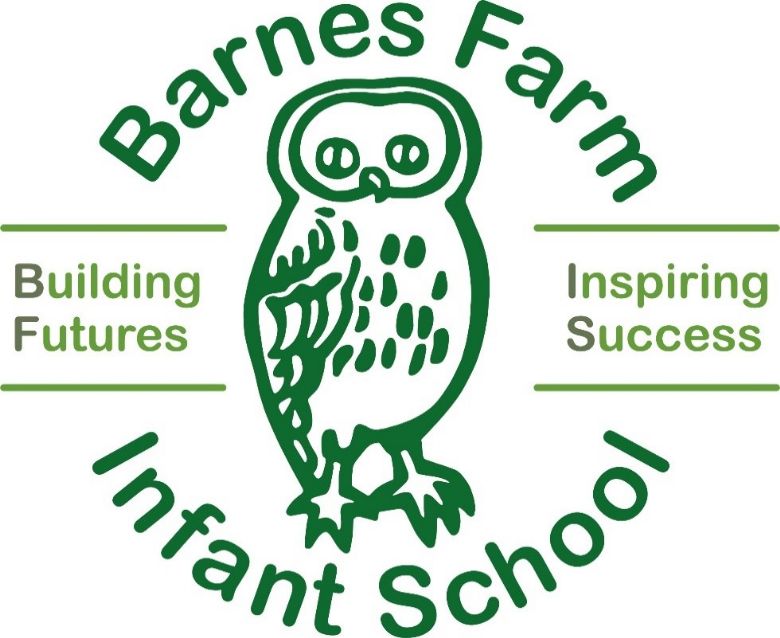Phonics
At Barnes Farm Infant School, we provide pupils with a clear understanding of how the alphabet works for reading and spelling.

Using the Little Wandle Letters and Sounds revised scheme, we enable our pupils to become fluent and confident readers with a strong phonological awareness whilst providing opportunities for repetition and consolidation so that reading, and spelling become automatic.
From Reception, we teach phonics in a variety of ways such as whole class direct instruction, small group exploration of individual sounds, graphemes, spelling families, High Frequency Words and Common Exception Words. We follow the Letters and Sounds structure.
Reception
Twice daily our pupils in our EYFS classrooms will have a phonics lesson which follow a range of strategies.
In Phase 1 pupils will be taught to:
-
Develop speaking and listening skills
-
Develop language and vocabulary
-
Explore environmental sounds, instrumental sounds, body percussion, rhythm and rhyme, alliteration, voice sounds, oral blending and segmenting
-
Develop curiosity about letters and sounds using fun activities
In Phase 2 and 3 pupils will be taught:
-
Phase 2 - Nineteen sounds including their sound and name
-
To segment and blend letters including VC and CVC words
-
To read some tricky words (words which are not phonetically decodable)
-
To read two syllable words and simple captions
-
Phase 3 – Another 25 graphemes
-
To use their blending and segmenting knowledge when reading and spelling
-
To read more tricky words and begin to spell them
Year 1
As the children progress into Year 1 they have two fifteen minute phonic sessions daily, pupils will progress to Phase 4 and 5 but also recap previous phases where necessary.
In Phase 4 and 5, pupils will be taught:
-
Phase 4 – consolidate knowledge of graphemes, segmenting and blending
-
To read and spell words with adjacent consonants and polysyllabic words
-
Phase 5 – new graphemes and alternative pronunciations for the graphemes they already know
-
To select the correct graphemes to represent phonemes when spelling
-
In Reception, ‘Word Worms’ are sent home to consolidate and practise with parents and carers. This will also apply to individual pupils in Year 1 and 2 if appropriate.

Year 2
By the time children go up to Year 2 most will know all sounds and graphemes up to Phase 5 so the focus turns to spelling families such as words with the medial vowel sound - 'ee' 'ough' and then progress onto words with prefixes and suffixes e.g. '...ness', '...ful', 'in....', 'un....'. Consolidation of all phases is taught as well as the Year 2 Common Exception Word list (see below).

How Phonics is taught at BFIS...
Reception and Key Stage 1
What are we trying to achieve through our Phonics Curriculum?What schemes we follow and why?At BFIS we aim to offer a comprehensive Phonics programme which starts in Reception through to Year 2. Phonics is a fundamental reading skill and is essential for our children to achieve a thorough knowledge of how words are formed in order for them to become fluent readers by the time they leave us for the Juniors. Phonics is taught through Big Cat Phonics for Little Wandle Letters and Sounds and is supported by Jolly Phonics for children who need a physical method to remember sounds. Little Wandle Letters and Sounds is then used for teaching in Year 1 and 2. |
How our Phonics Curriculum being delivered?Phonics is delivered in Reception through daily 25 minute sessions in which the first 5 minutes is to recap sounds, time is then spent on being able to read HFW, new phonic sounds is then taught and sound buttons and ‘robot arms’ are used to practise new words to demonstrate the new phoneme or graphemes. More able children will then independently apply their skills in the form of dictated sentences e.g. ‘The moth is in the bath’ whilst the rest of the class will be practising individual words e.g. ‘moth’. Children are encouraged to have a go at spelling unfamiliar words. Tricky words are then taught through singing, rhyme and repetition.In Year 1, phonics is taught in two fifteen minute sessions each day through Little Wandle which is an online teaching tool which links to our reading scheme full of fun interactive games and resources based on Letters and Sounds.. Each session is split into 6 key elements.
In Year 2, a gap analysis provides the starting block for teachers to either continue with Phase 5-6 or move on to the Spelling requirements for Year 2 through Little Wandle and Spelling Play. Little Wandle and Spelling Play. |
What difference our Phonics Curriculum making?What assessments we use? How we track progress...Our children are engaged in their phonics sessions because they are interactive, include fun games and offer all aspects of learning phonics for reading. We apply new learning to our Working Walls which are constantly updated and referred to during lessons.To assess phonics we use our Little Wandle Phonics Assessment sheets each term which provide evidence for progression but also a gap analysis to inform planning. This also links to the child's reading book band. |
Ways We Celebrate Phonics...Phonics is celebrated within lessons, rewarding children with individual stickers, the child's name going on the over and above board as well as in celebration assembly on a Friday. |
How our Phonics Curriculum meets the needs of all Learners...Any children that find Phonics tricky have individual plans detailing the phonemes and graphemes they are working on.Alphabet Arc is an intervention we use for children who are working below the age related expectations.We have an experienced Speech and Language LSA who support children from Reception who are demonstrating particular difficulties with the articulation and hearing of sounds. |
